Vulva Care 101: Choosing the Right Intimate Oil
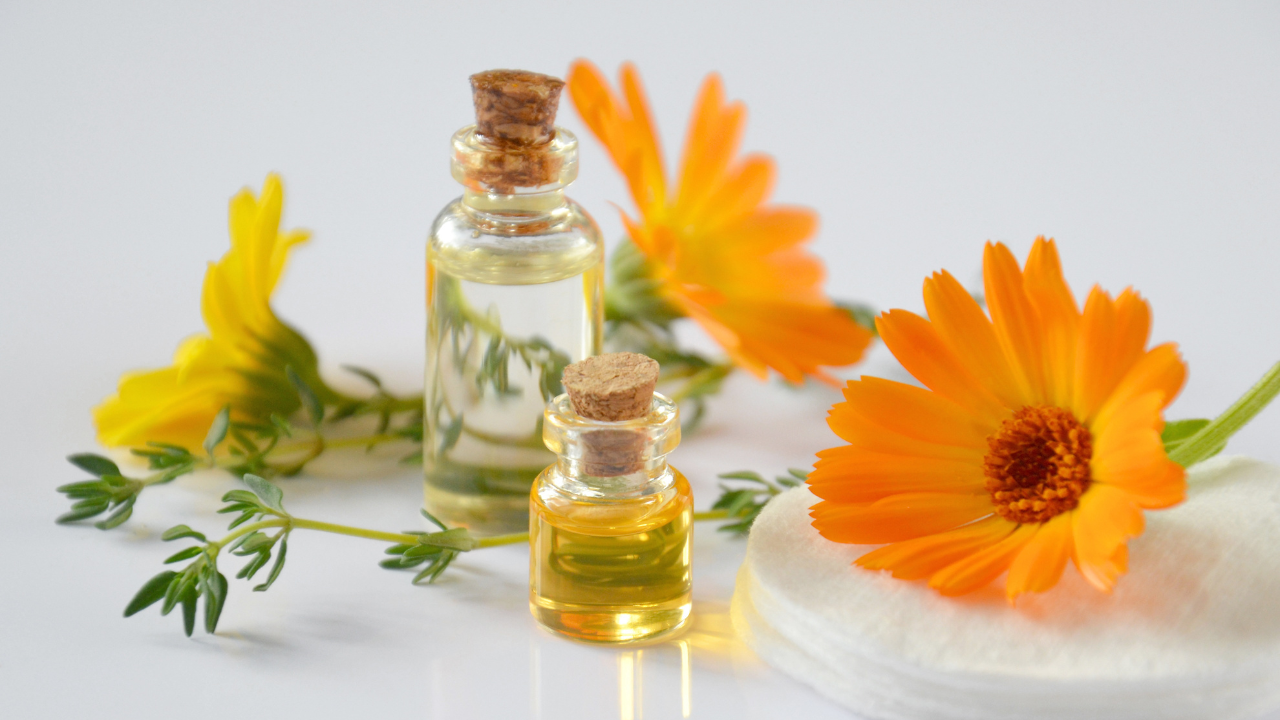
Table of Contents
Oils have always been a staple in my beauty routine. I’ve stopped using exfoliants. I’ve rotated serums. I’ve ditched foaming cleansers. But oils always stay. I personally feel they’re one of the only products that actually nourish the skin instead of stripping it.
I use an intimate oil anytime my vulva feels tight, itchy, or tender.
Intimate oil is a clean, topical oil made specifically for the outer vulva, the labia majora, labia minora, the creases around the clitoris, the perineum, and the vestibule just outside the vaginal opening. It’s meant to stay external. It’s designed to moisturize and support the barrier of one of the most absorbent and hormonally responsive areas on your entire body.
Why Most Products Marketed as “Feminine” Are Not Safe for Your Vulva
If you walk into any drugstore, the “feminine care” aisle is packed with washes, sprays, wipes, deodorants, and pads that promise freshness, cleanliness, and control. What they don’t tell you is that most of these products are completely inappropriate for the skin they’re being sold for.
The skin of the vulva and perineum is thin, absorbent, and pH-sensitive. When you introduce synthetic fragrance, drying alcohols, harsh preservatives, or foaming agents like sodium lauryl sulfate (SLS), you strip the natural moisture barrier and disrupt the microbiome that keeps bacteria and yeast in check.
This leads to very real symptoms. Many women assume these symptoms are just part of having a vulva. But in reality, they’re often caused or worsened by the very products we’re told to use to “stay fresh.”
Even natural products aren’t always safe. Undiluted essential oils like tea tree or peppermint can cause stinging, inflammation, and damage to the epithelial layer. And many “vaginal-safe” brands still load their formulas with glycerin, which can feed yeast, or pH-disruptive preservatives that were never tested on mucosal skin.
Here’s a quick breakdown of what to avoid, and what to look for instead:
|
Unsafe Ingredients |
Safer Alternatives |
|---|---|
|
Fragrance |
Lavender hydrosol |
|
Glycerin |
Jojoba oil |
|
SLS / Parabens |
Calendula-infused oil |
|
Undiluted essential oils |
Diluted EO (<1%) in carrier oil |
|
Alcohol-based wipes |
Aloe vera juice (no alcohol) |
|
pH 5+ washes |
pH-balanced (<4.5) gentle oil |
The Best Ingredients to Look For in All Natural Intimate Oil
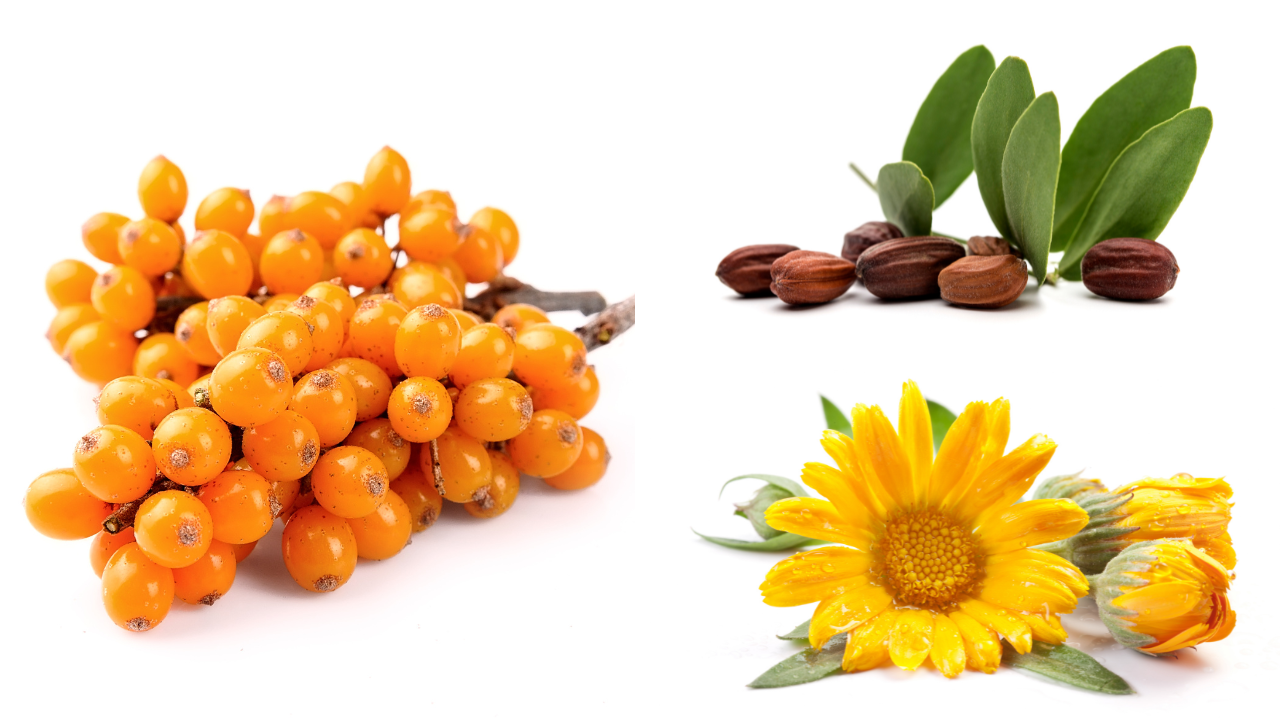
Carrier Oils
Jojoba Oil
Jojoba isn’t really an oil, it’s a liquid wax that mimics your skin’s natural oils and it sinks in without leaving a film. It won’t block pores around the labia or cause irritation. It’s the ideal base when your skin is feeling stripped, overwashed, or tight after shaving.
Sea Buckthorn Oil
This oil is deep orange because it’s loaded with omega-7, a rare fatty acid that helps repair and regenerate mucosal tissue. If you’ve ever felt papery skin or dryness right before your period, sea buckthorn is the ingredient to reach for.
Calendula-Infused Oil
Calendula has been used in wound care for centuries. When infused in a gentle carrier, it helps calm stinging, irritation, and micro-abrasions caused by sex, wipes, or even rough underwear seams. You’ll feel the difference within hours. It’s especially helpful if you’ve been dealing with redness or swelling that doesn’t go away.
Plant Extracts & Herbs to Ease Discomfort
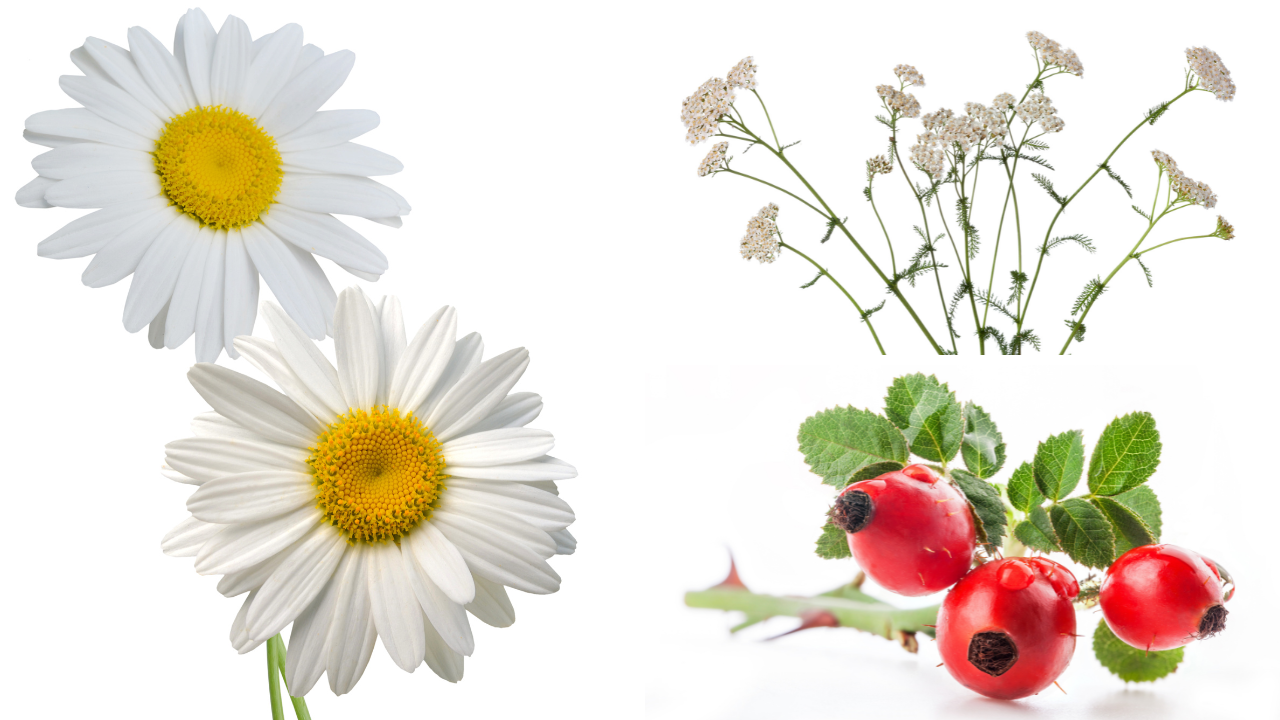
Chamomile & Cape Chamomile
This is the herb you want when your skin feels hot or flushed after sex or if you’re just sensitive to everything. Chamomile calms the nerves and the tissue. It's anti-inflammatory abnd it helps soothe that specific post-friction throbbing that water alone can’t touch. Cape chamomile is ideal for skin that’s overreacting, itchy, rashy, or bumpy. These help prevent those tiny ingrown hairs from turning into days-long discomfort.
Yarrow
Yarrow is incredibly antimicrobial and helps prevent bacterial overgrowth when you've shaved, waxed, or had penetrative sex that left you raw.
Rosehip
If you have fine cracks in the skin near your vaginal opening, perineal scarring from childbirth, or a “thin-skinned” feeling during hormone dips, rosehip helps rebuild. It tones tissue, improves skin density, and restores that plump, healthy texture that makes arousal feel good again.
Essential Oils - The Good Stuff To Look For
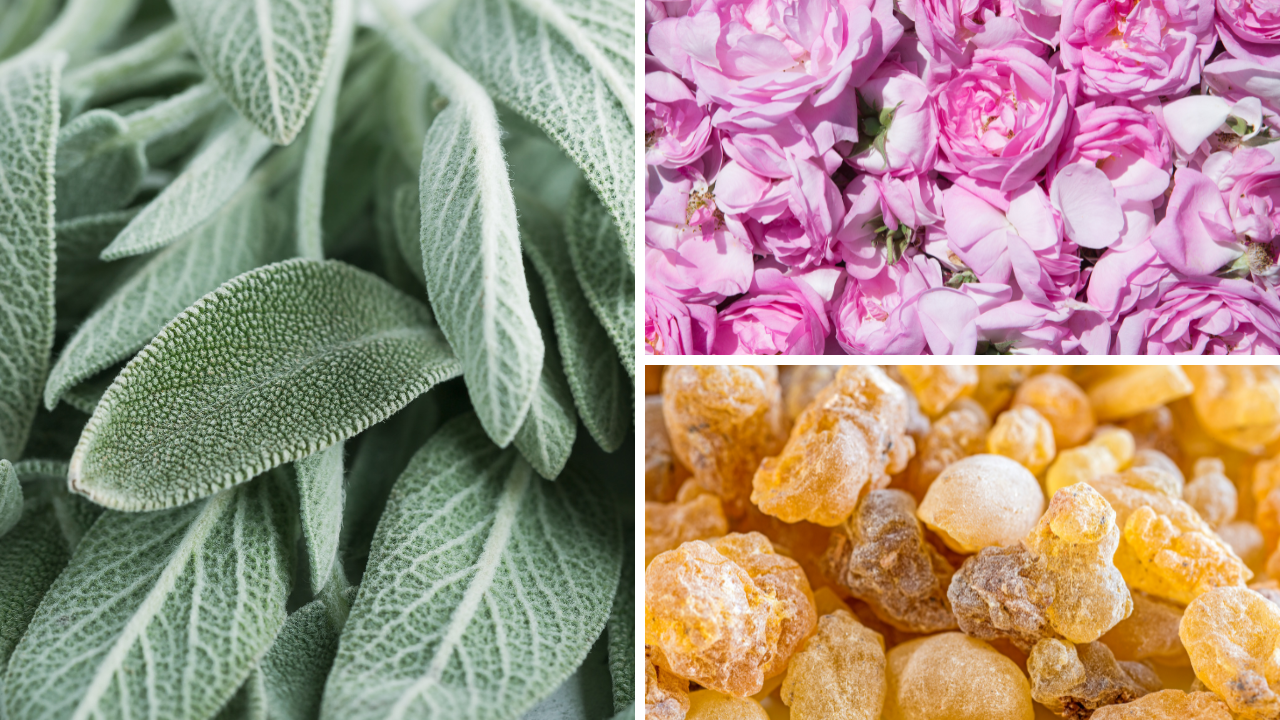
Rose Otto
This is the oil used by midwives and trauma therapists for its effect on the nervous system. When your body holds tension around your vulva, Rose Otto offers softening.
Frankincense
This oil is earthy, resinous, and deeply grounding. It’s also regenerative and gently encourages new skin formation and supports tissue tone.
Clary Sage
When PMS brings on vulvar irritation, or perimenopause causes thinning and dryness, Clary Sage helps the skin hold moisture better. It’s especially helpful for women who notice changes in sensation or swelling patterns across their cycle.
How to Use Intimate Oil
Daily Vulva Care
Apply a few drops of oil to the labia majora and minora after bathing or wiping. Use clean hands. Warm the oil between your fingers, then press or glide it into the skin. Let it soak in, no need to rub hard. You can do this clothed or unclothed.
Perineal Massage
Massage the space between the vaginal opening and anus using gentle pressure and circular or sweeping movements. This helps support circulation, softens scar tissue, and improves elasticity.
Post-Sex Repair
After sex, apply oil to soothe friction and reduce tenderness. This calms overstimulated skin, supports healing of microtears, and helps prevent delayed itch or burning. Use it anywhere that feels swollen, rubbed raw, or heat-sensitive. For deeper repair, layer the oil with a warm, damp cloth and rest for ten minutes.
Self-Intimacy Rituals
Use oiling as a way to connect. Sit with a mirror. Breathe into your belly. Let your hand move slowly as you apply the oil, exploring the texture and temperature of your own skin. Include your inner thighs, hip creases, and pubic mound. You can combine this with womb massage or breathwork.
Meet the Oils We Trust
Petal Passion Yoni Serum
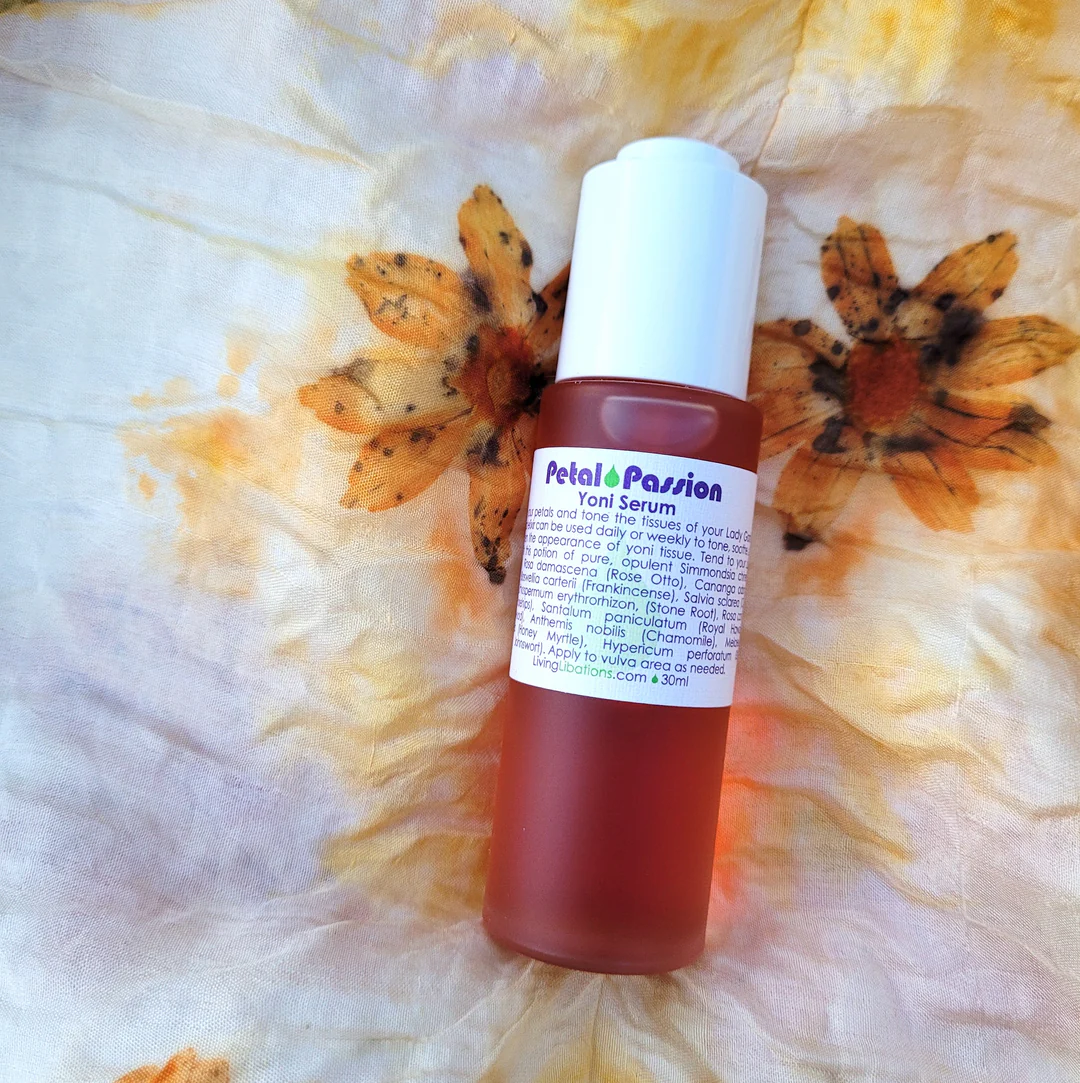
Key ingredients: Jojoba, Rose Otto, Clary Sage, Frankincense, Wild Rosehips, Royal Hawaiian Sandalwood
Use this when: penetration feels tight, perineal scar tissue is restricting movement, or you want to reclaim a sense of sensual presence
Petal Soother Yoni Serum
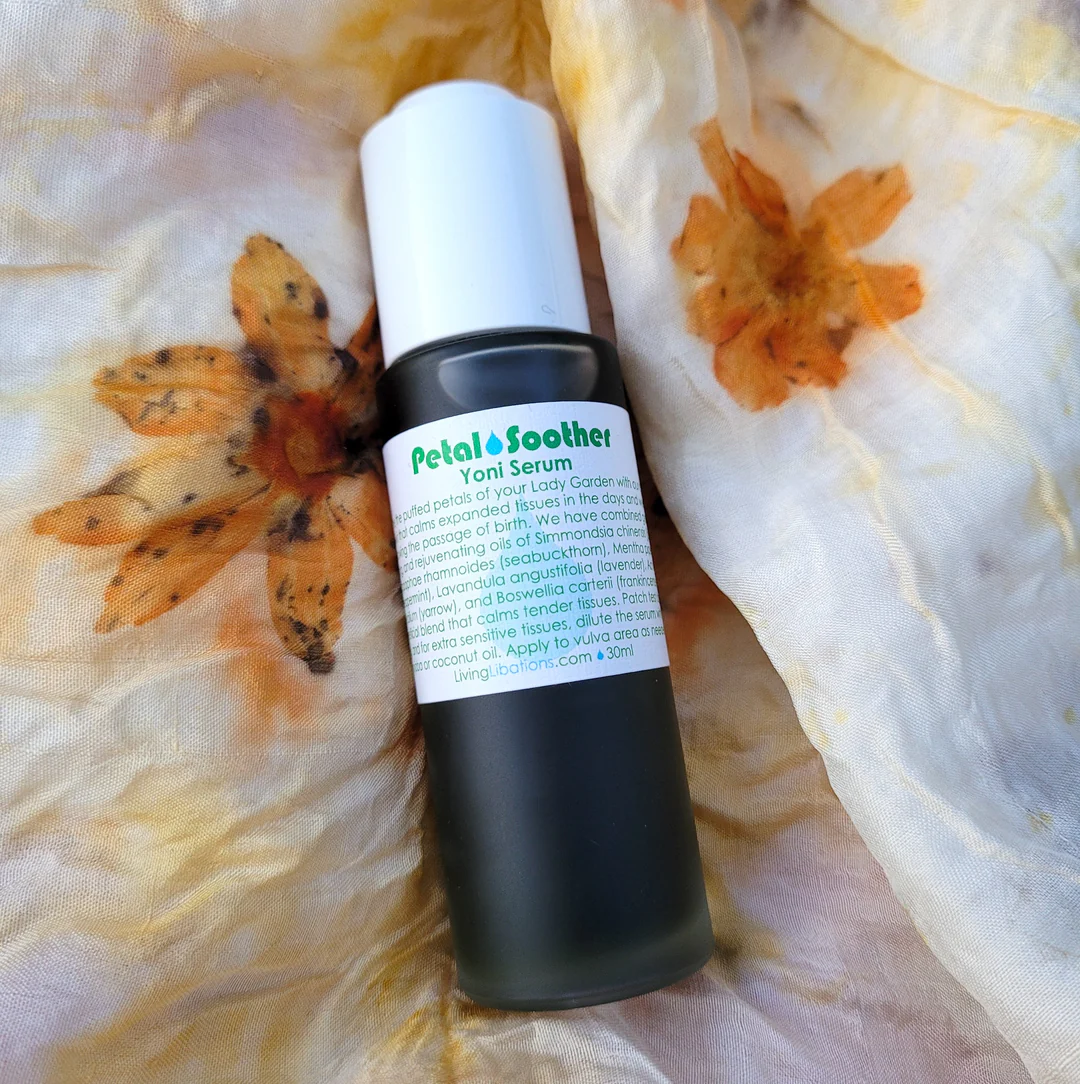
Key ingredients: Seabuckthorn Berry, Yarrow, Peppermint, Frankincense
Use this when: you’re inflamed, overstimulated, post-wax or post-sex, or just need something to quiet the skin without triggering more reactions.
Petal Primer Yoni Serum
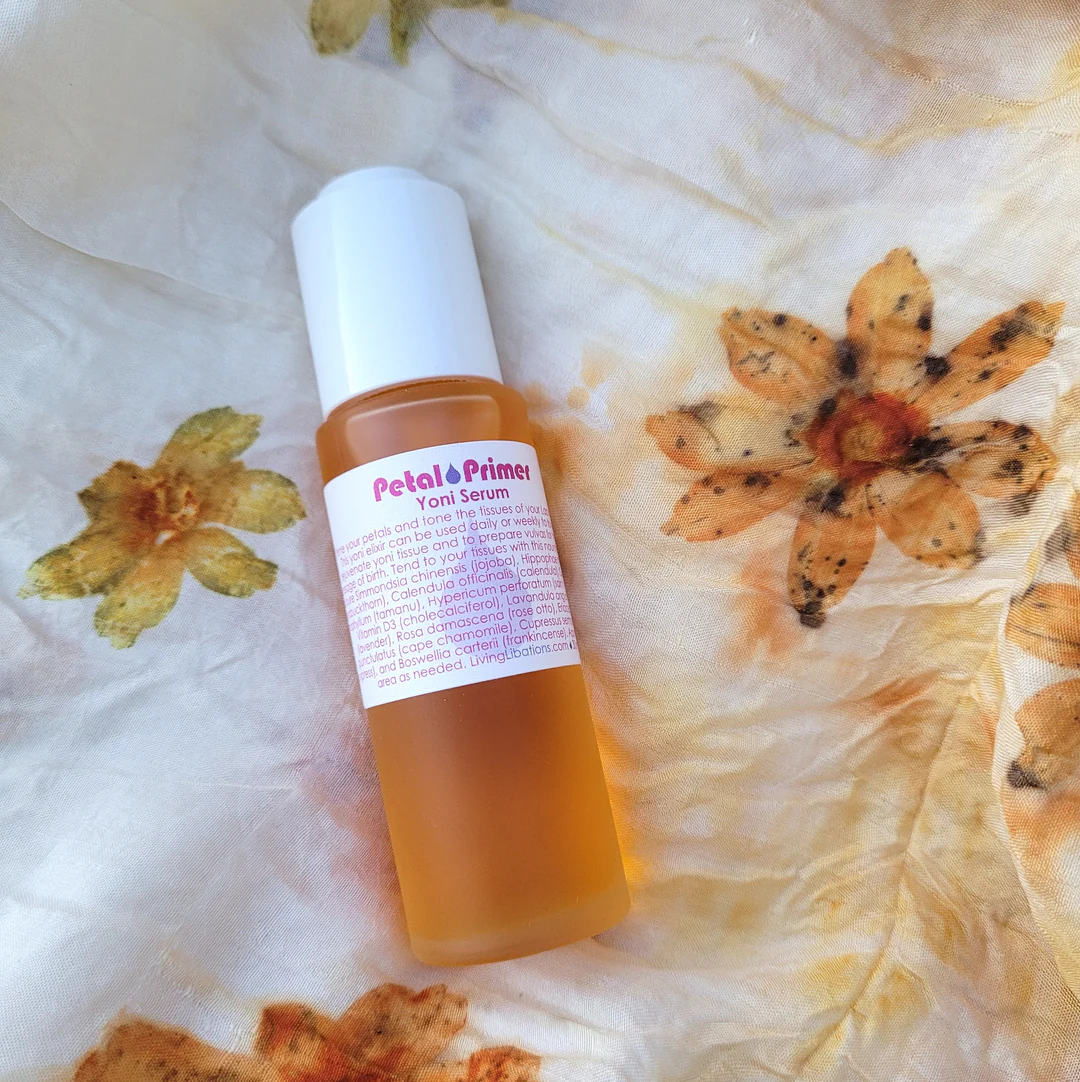
Key ingredients: Calendula, Cape Chamomile, Lavender, St. John’s Wort, Vitamin D
Use this when: you're rebuilding a daily routine, easing into post-antibiotic care, maintaining skin pH, or just want something simple that works.
When to Avoid Using Intimate Oil (And What to Watch For)
-
During an active infection
If you have BV, a yeast infection, or a UTI, avoid using oils. They can trap bacteria and worsen inflammation. -
If you haven’t patch tested
Always test a small amount on your wrist or inner thigh before using on vulvar skin. Wait 24 hours to check for any reaction. -
When irritation is already present
If your skin is burning, swollen, or raw, skip scented or essential oil-based blends. Choose an unscented, calming formula or pause use altogether. -
If you experience any reaction
Stinging, burning, increased discharge, or sudden itchiness are signs the oil isn’t working for your skin. Discontinue immediately. -
When you're hoping to treat an infection
Oils don’t cure infections. They support tissue hydration and elasticity. If you’re managing chronic issues, consult a pelvic floor therapist or integrative gynecologist.
Conclusion
Intimate oil is the most nourishing and supportive form of vulvar care I’ve ever used, and I genuinely believe more women should be using it instead of wipes, washes, or anything that promises to “freshen.”
Oiling the body is an ancient practice. A few drops a day softens scar tissue and brings moisture back to the skin.
Supportive, grounding, and deeply replenishing, intimate oil has become one of the few things I trust completely.
FAQ
Intimate oil is designed to hydrate, soothe, and nourish the skin of the vulva and perineum, areas often exposed to friction, dryness, hormonal changes, and sexual activity. Intimate oils are applied externally on a daily basis to enhance comfort and regulate vaginal pH levels.
Certain formulas go further by including plant-derived essential oils, broad spectrum CBD, and soothing seed oils like jojoba and sweet almond oil to increase blood flow and provide extensive physical relief. Many women report greater relaxation, increased pleasure, and even more intense orgasms as a positive side effect of regular use.
If you're looking to enhance personal pleasure or take your sexual experience to a whole new level, the best oils are those that combine clean ingredients with skin-safe functionality. Look for hemp-infused products or formulas that include full spectrum hemp extract, vitamin-rich seed oils, and plant-based essential oils like peppermint, lavender, or even black pepper promote feelings of warmth and increased sensation.
Avoid oil blends that include artificial fragrance, parabens, or ingredients that degrade latex condoms. If you're using sex toys, especially plastic toys, make sure the oil is ph balanced and won’t cause damage to the material. Always check for compatibility if you’re pairing oil with latex condoms or CBD lube products.
For daily vulva care, the best choice is an all natural, oil-based blend formulated specifically for sensitive skin. Oils like jojoba are ideal because they closely mimic the skin’s natural sebum and absorb quickly without leaving a residue. Sweet almond oil is another top option, it's lightweight, deeply moisturizing, and gentle enough for regular use. Organic coconut oil offers antimicrobial benefits, though it’s not suitable for everyone, as it can disrupt vaginal pH levels or contribute to yeast infections in some cases. Calendula and vitis vinifera (grape seed oil) are excellent for soothing inflammation and supporting tissue repair, especially after shaving or sex. If the formula includes essential oils, make sure they’re in a safe dilution, typically under 1% to avoid irritation. Oils that include CBD or broad spectrum hemp extract can also increase blood flow and enhance relaxation during sexual play.
Yes, as long as the oil is formulated for intimate areas and made with clean, body-safe ingredients. Applying oil to the vulva can soothe irritated skin, improve tissue resilience, and provide moisture after bathing, sex, or shaving. That said, always choose an oil that’s ph balanced, non-toxic, and free of additives that could disrupt vaginal pH or irritate mucosal tissue. If you're dealing with infections, severe pain, or ongoing irritation, speak to a healthcare provider before introducing new products.





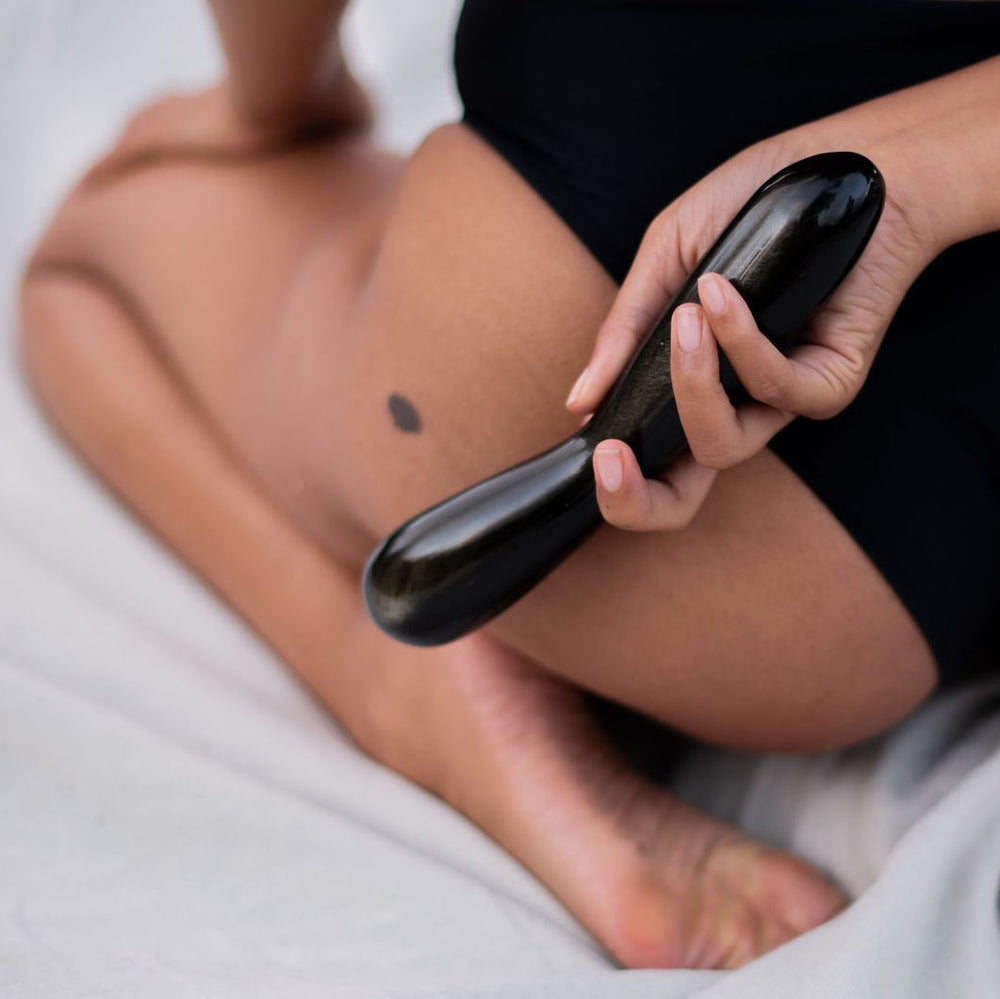



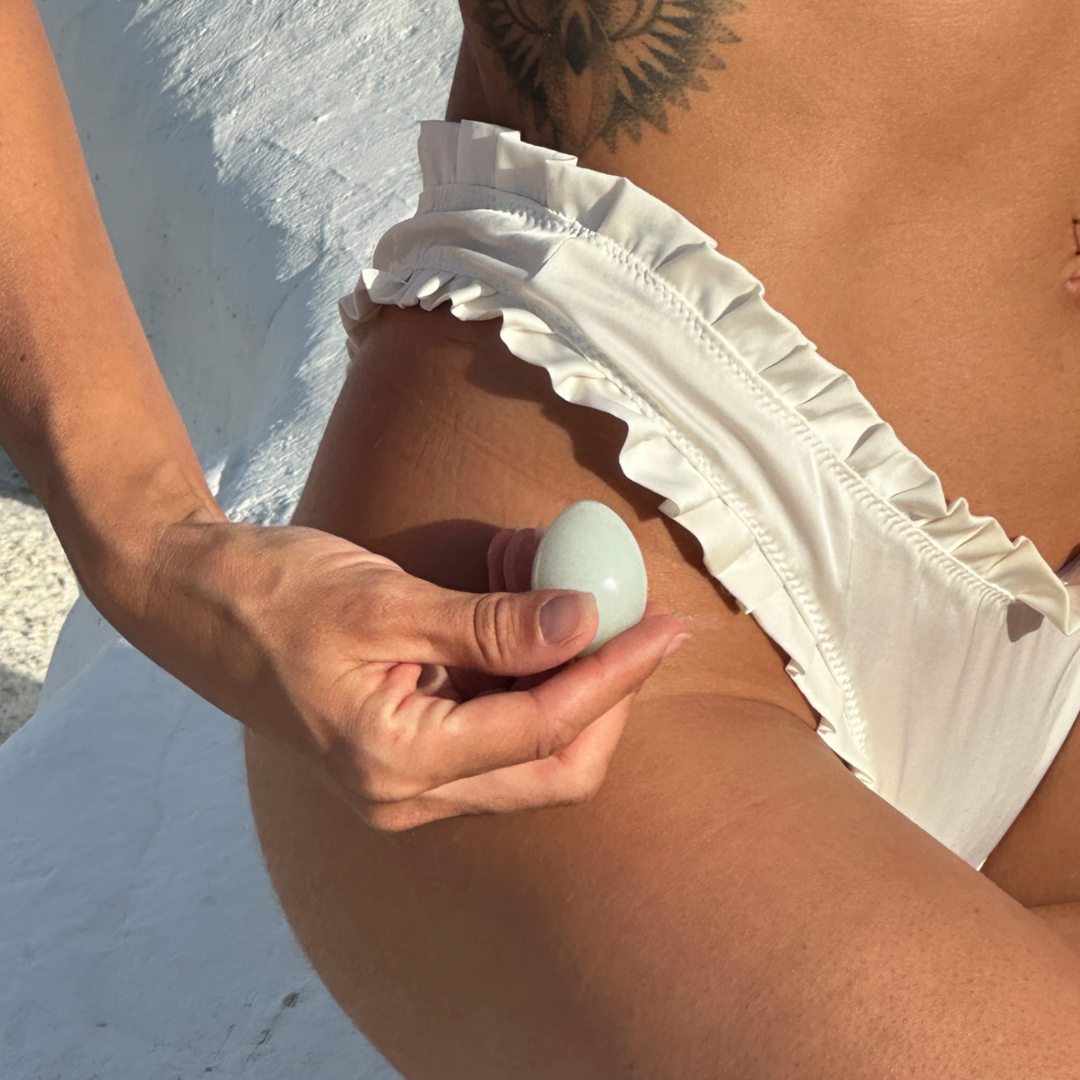
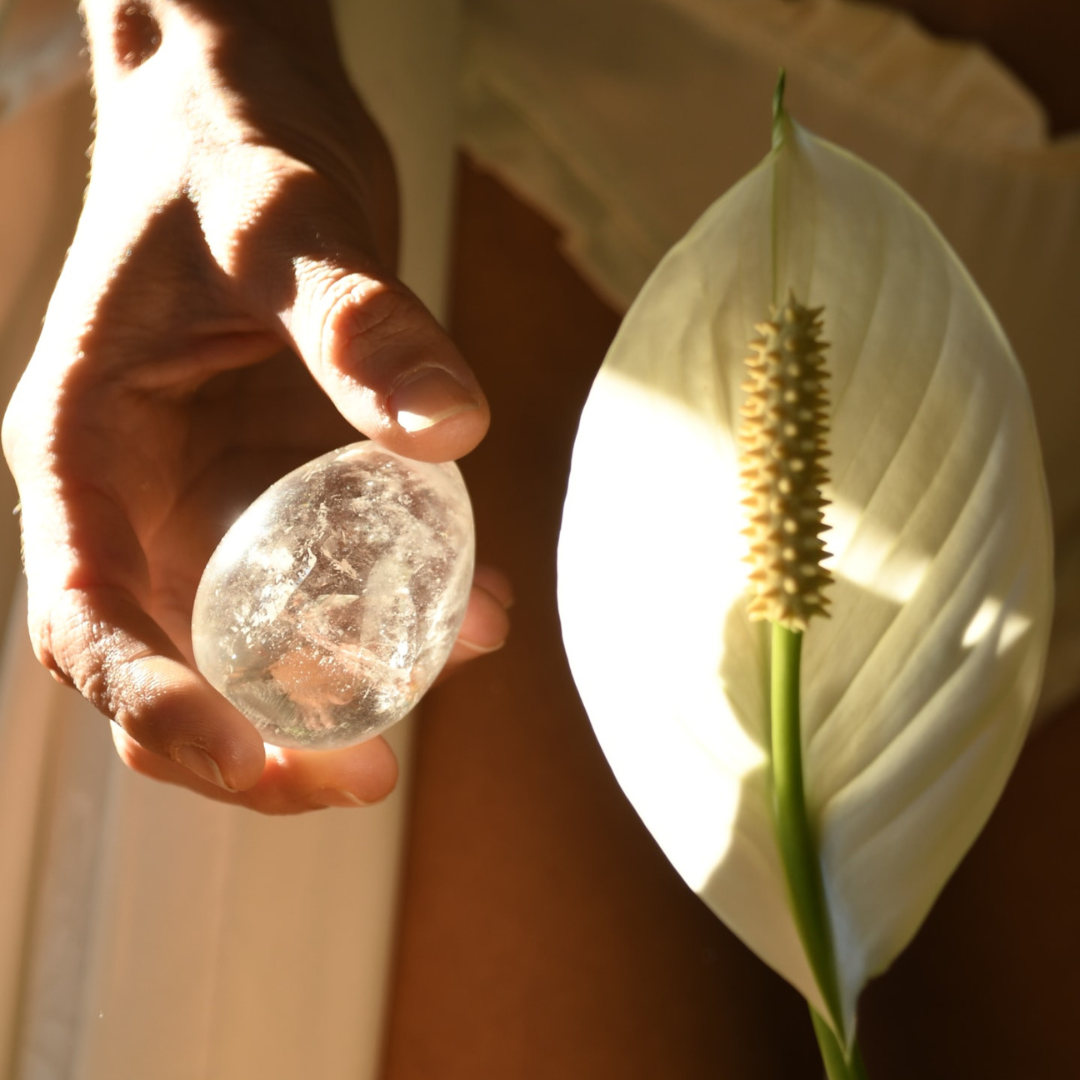

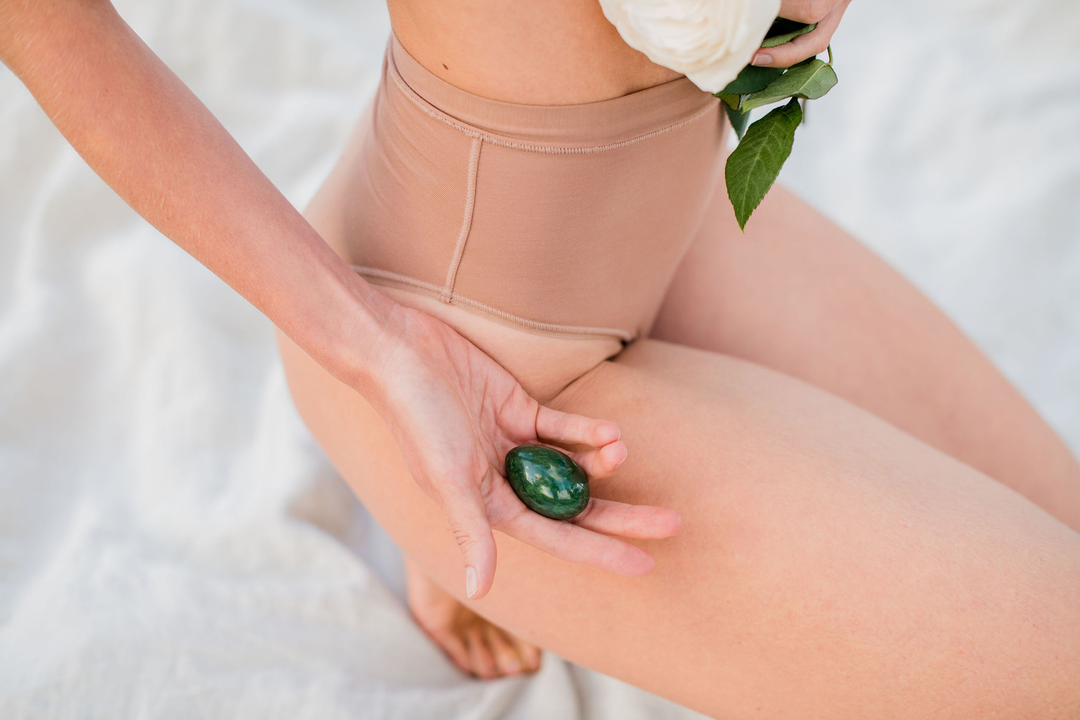
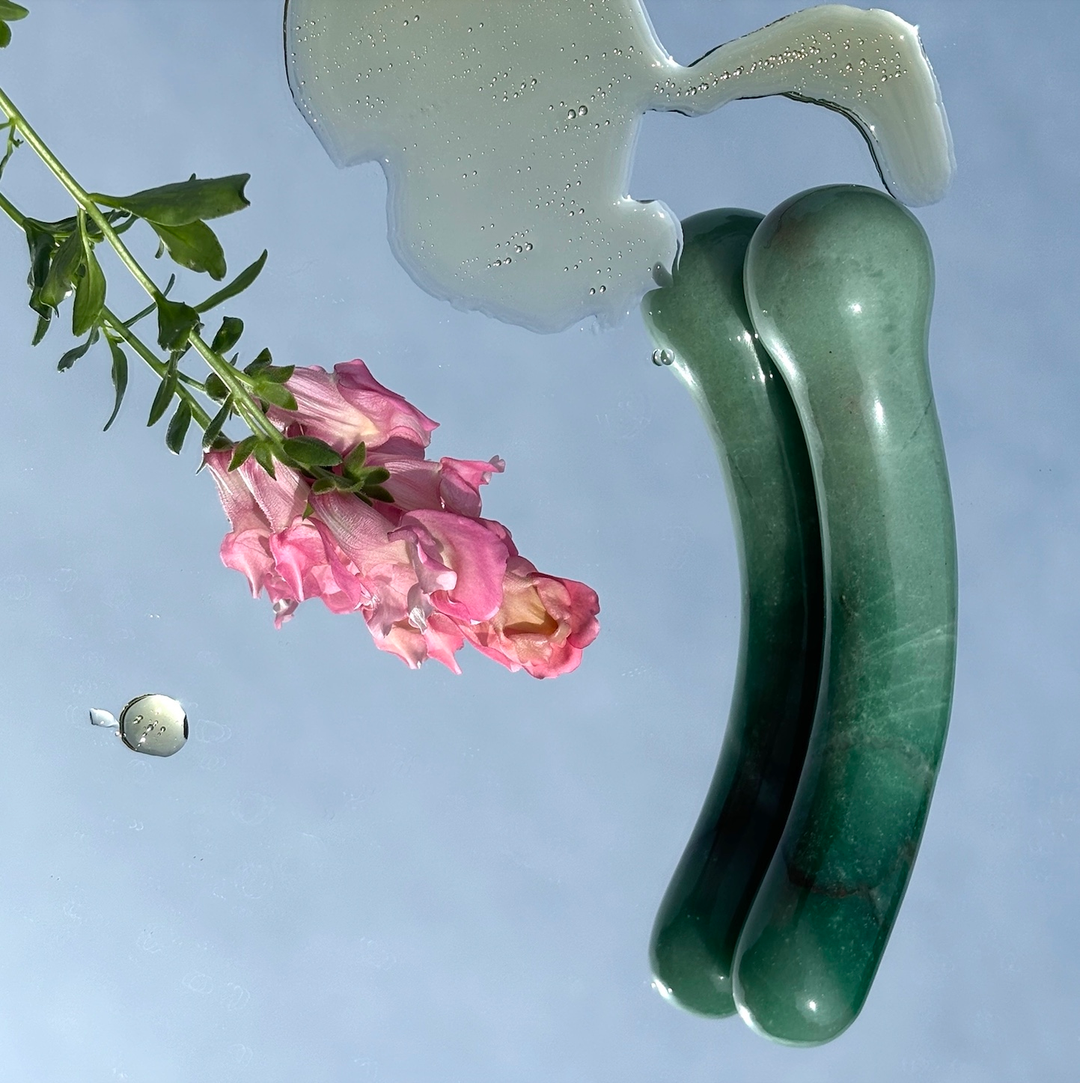
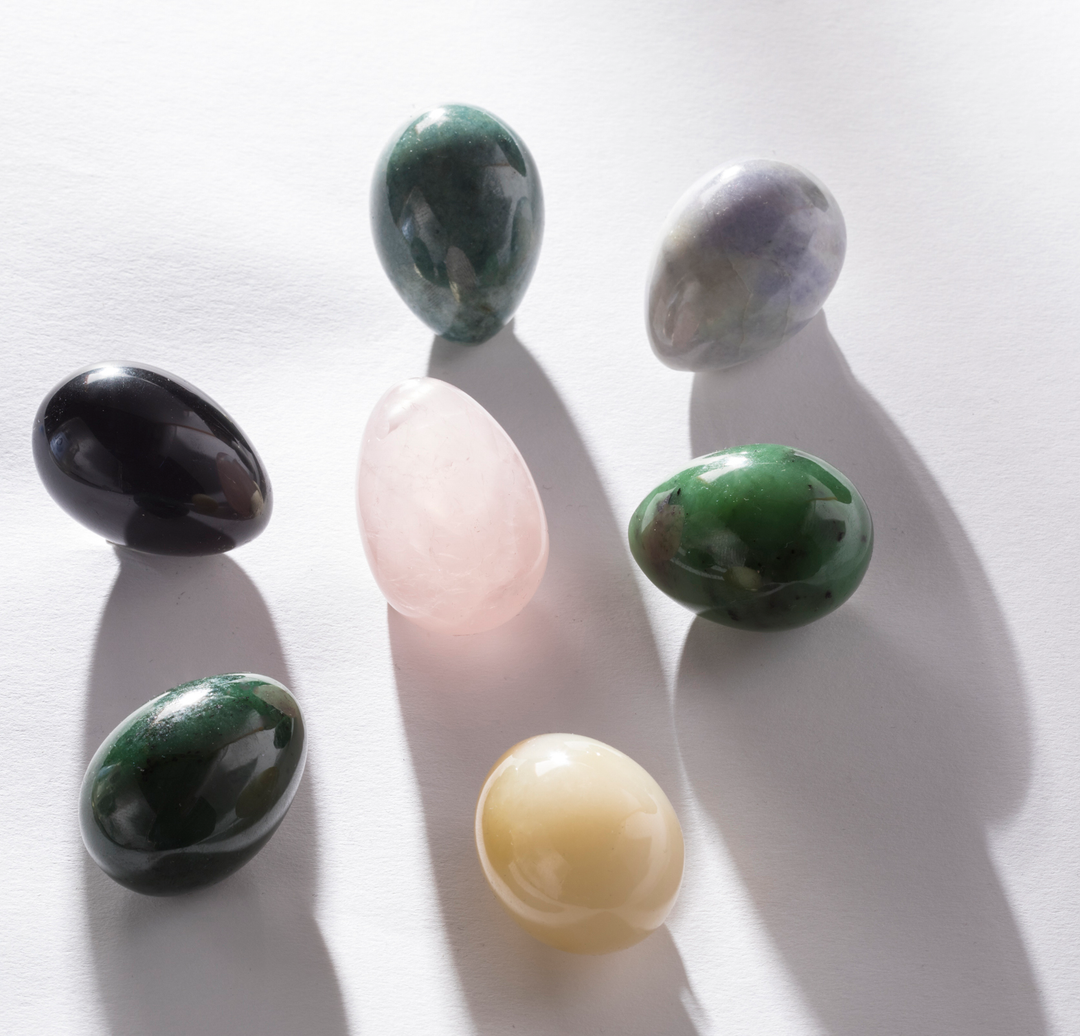
Leave a comment